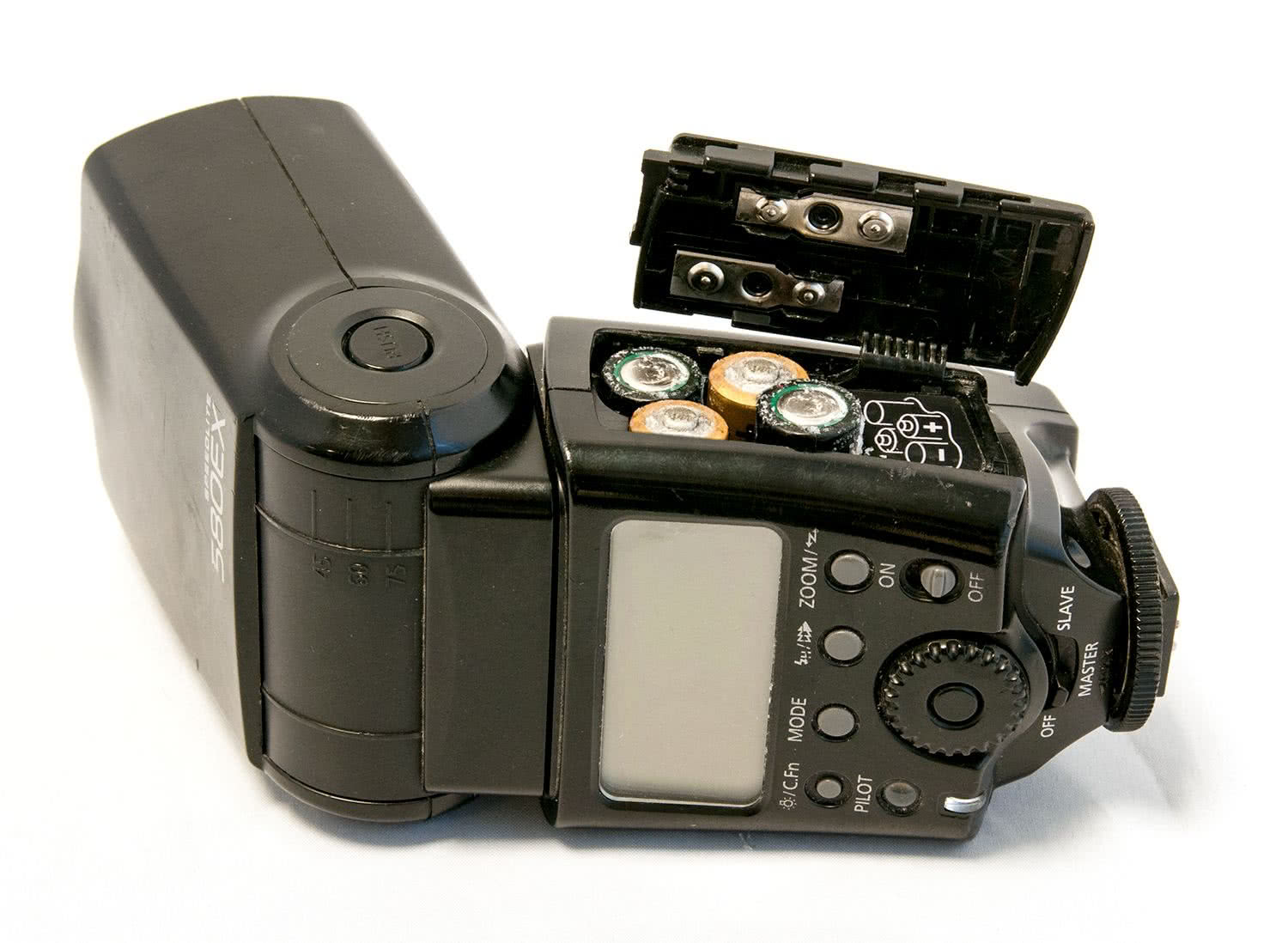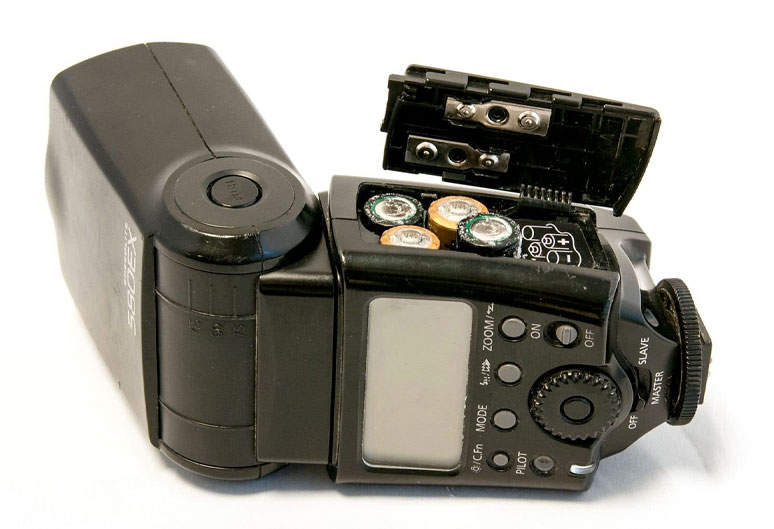Pretty much everything in the photographic world runs on batteries, and they need to be cared for. Battery corrosion can cause serious damage to equipment if left unchecked. In this quick blog we’re going to give you some tips on taking care of your batteries.
Not that long ago, nearly all photographic products were powered either by AA or AAA batteries, also known as alkaline batteries. Everything from Nikon’s old MD-4 film-advancing motor drives to Canon’s T90 cameras and battery packs for the first SLR cameras in the early 1960s would be powered by common, over-the-counter batteries.
Battery leakage has caused photographers problems for years. We’ve seen the issue plenty of times in the Fixation workshop – sometimes just getting the old leaked batteries out of the battery holder or battery box is almost impossible.
Battery technology has greatly improved, and modern digital cameras now all mainly use Li-Ion batteries, which are designed to give far better performance. They’re rechargeable and more environmentally friendly. Very rarely do we see any problems with these types of batteries!
An important caveat though is that you should buy Li-Ion batteries from a reputable source. if you are buying online and the price of a third-party battery seems far too good to be true, it probably is. The battery will usually be a fake, and this can cause damage to your camera and void the warranty.
Nowadays most of us don’t buy anywhere near as many batteries as we used to. It’s easy to be shocked at how much a pack of AA or AAA batteries costs! However, most camera producers still sneak in one or two products that rely on common AA or AAA batteries, flashguns being among the most common, and therefore photographers still have to buy them.
We would always advise buying a recognised brand, like Energizer, Duracell or Panasonic. These do tend to be more expensive, but you’ll be better off in the long run. At Fixation, we have a wide selection of batteries, so give us a call if you’re going to need them in bulk, or just want to stock up.
If you’re going to buy third-party rechargeable lithium batteries, then we would recommend still using trusted brands like Ansmann and Hahnel, which rarely leak. Be aware that many third-party Li-Ion batteries have a slightly lower voltage, which can mean that they won`t last as long as conventional types and will need to be charged more often.
If you’re using hot-shoe flash units and flash triggers on a photographic shoot, then you’re going to be using AA or AAA batteries. What often happens in these cases is that when a photographer has finished, they put all their gear away in a hurry and leave the pesky batteries in the devices, sometimes forgetting about them for months on end. And what happens? Sometimes, the batteries leak.
Pulling a flash unit or trigger out of your camera bag only to find that its batteries have leaked is a photographer’s worst nightmare. If you haven’t brought a spare flash unit, you’re looking at a minimum of twenty minutes spent frantically cleaning the flash contacts up, and you’d better hope you brought some more batteries! And try doing all that with a client breathing down your neck. It can be extremely stressful!
We’re not shaming anyone – this can happen to any photographer. But it’s best to leave cleaning battery corrosion to the professionals. If your batteries have leaked, Fixation can help, either by cleaning or replacing the damaged parts and getting the flashgun or other device up and running again. In the best case scenario it’s just a matter of cleaning the contacts and battery li. Sometimes, however, due to the highly corrosive nature of the battery acid, the internal circuitry can be irreparably corroded. If so, we can provide documentation to this effect for your insurance.
All this can be costly, and the prevention is much nicer than the cure. So get in the habit of taking batteries out of your devices when you’re not using them!
Take the case of this poor Speedlite. It had been left for a couple of months, and the batteries had leaked rather badly. There was a happy ending however, as it was simply a matter of carefully cleaning the contacts to remove the salty deposits, and the flashgun was as good as new.

In many cases though, if the batteries have leaked excessively, the battery acid can cause corroded contacts and find its way into the circuitry, rendering the equipment irreparable.
So, once again, make a point of taking the batteries out and storing them in a separate pouch or a dedicated pocket in your bag. This way, if they leak, at least they won’t damage anything expensive!
Disposing of batteries
Our responsibility to recycle correctly cannot be emphasised enough. At Fixation, we have regular collections of WEEE (Waste Electrical and Electronic Equipment) product, including batteries, from our home in London’s Vauxhall.
If your batteries have leaked and you have removed them, please do not throw in the general rubbish bin. These and all types of batteries contain some pretty nasty stuff (acid, lead, mercury, nickel) and they must be recycled correctly. We and all Wex Photo Video stores have collection bins for batteries, as do many other stores including all major supermarkets. We are always happy to recycle them for you, so just bring them in and we will deal with them in the correct way.

